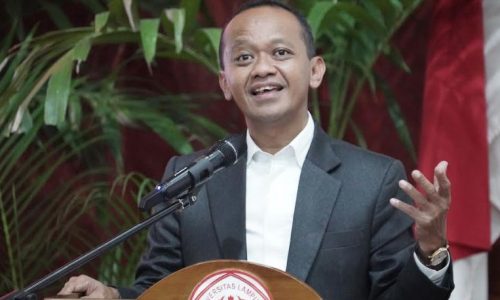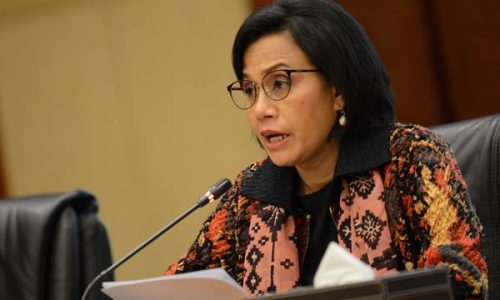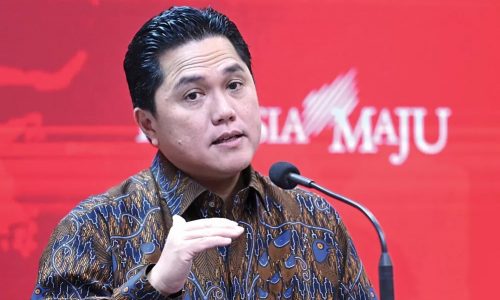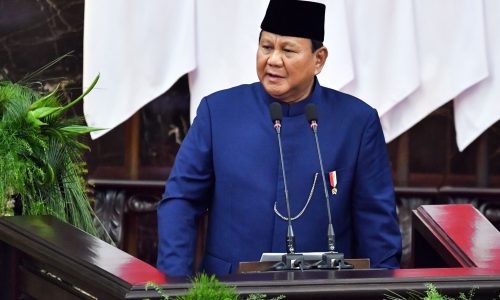The Coordinating Ministry for Political, Legal and Security Affairs is reviewing a proposal to remove the prohibition on Indonesian Military (TNI) personnel from engaging in business activities as stipulated in Law No. 34/2004 on the TNI.
As part of the ongoing revision of the law, discussion regarding prohibition for TNI personnel to get involved in business activities is included in the Problem Inventory List (DIM) of the draft law on TNI.
“We are still reviewing the TNI law, primarily focusing on Articles 47 and 53. However, the business-related issues are still under discussion,” Coordinating Minister for Political, Legal and Security Affairs, Hadi Tjahjanto, said as quoted by Antara on Wednesday, July 17, 2024.
The two articles mentioned by Hadi pertain to the extension of service terms and the placement of TNI personnel in public positions. The ministry is also seeking input from various stakeholders to revise the law.
“The TNI Law has been in place for 20 years; we need to adjust to current needs,” Hadi said.
The minister said he has planned to consult with academics during the input-gathering process before submitting the DIM to the House of Representatives (DPR). He assured that the regulation regarding the removal of the prohibition will be carefully reviewed.
“The DIM will be completed in August,” he said.
The TNI earlier proposed to the Coordinating Ministry for Political, Legal and Security Affairs to remove the restriction on TNI personnel engaging in business activities via a TNI personnel during a discussion at the coordinating ministry on Thursday, July 11, 2024.
The prohibition on TNI personnel engaging in business is currently stipulated in Article 39(c) of the TNI Law. This proposal has sparked a debate among the public.
Regression in military reforms
The idea of removing the prohibition on Indonesian Military (TNI) personnel from engaging in business activities in the revision of Law No. 34/2004 is considered as contrary to the spirit of TNI reforms.
“The proposal to remove prohibition on business engagement for TNI personnel clearly indicates a regression in TNI reforms,” Anton Aliabbas, Head of the Center for Intermestic and Diplomatic Engagement (CIDE) at Paramadina University, said as quoted by Kompas.com on Tuesday, July 16, 2024.
Anton noted that during the formulation of the TNI Law two decades ago, the debate over whether to allow TNI personnel to engage in business was significant.
In the 2004 discussions of the TNI Bill, the DPR and the government agreed to prohibit military personnel from engaging in business activities, aiming to ensure that they focus professionally on defense duties and sovereignty protection.
“When the state aims to establish a professional TNI, one indication is the state’s takeover of all military businesses, both directly and indirectly,” Anton said. “In other words, the state aims to position the TNI as the primary defense instrument.”
Earlier reports indicated that the TNI proposed allowing active personnel to participate in business activities through the revision of Law No. 34/2004 on the TNI.
Based on Article 39(c) of the TNI Law, active military personnel are prohibited from engaging in business activities. The TNI has suggested that this article be removed.
Rear Admiral Kresno Buntoro, Head of the TNI Legal Development Agency, argued that the prohibition should apply to the TNI institution, not individual soldiers.
“We suggest removing Article 39(c) of the TNI Law. The prohibition should be on the TNI institution engaging in business. But for soldiers, even opening a small shop is not allowed,” Kresno said during the “Public Hearing on the TNI/Polri Bill” organized by the Coordinating Ministry for Political, Legal and Security Affairs at Hotel Borobudur, Central Jakarta, on Thursday, July 11, 2024.









